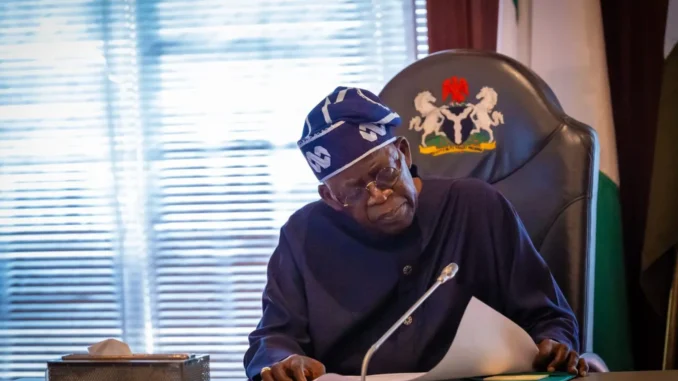
By Divine Sam
As President Bola Ahmed Tinubu marked his second year in office on Thursday, May 29, 2025, public opinion on his performance remains divided, with contrasting assessments from prominent figures Alhaji Tanko Yakasai and Professor Kabiru Isa Dandago.
Speaking in an exclusive interview with Daily Post, 99-year-old elder statesman and veteran politician Tanko Yakasai described Tinubu’s administration as being in a “neutral zone,” neither outstanding nor disappointing. He acknowledged that while the nation continues to face significant economic challenges, the president has taken commendable steps toward stabilisation.
“It would be unfair to claim the president has made no progress,” Yakasai said. “Public complaints have lessened, and although his policy adjustments are not perfect, they provide a groundwork for future economic transformation.”
On the question of Tinubu’s chances for re-election in 2027, Yakasai expressed confidence in the president’s political standing.
“At present, I see no serious contender with enough popularity or influence to rival him,” he noted. “His backing from many governors, along with their commissioners, lawmakers, and party figures, gives him a major advantage. Still, politics is unpredictable.”
In contrast, economist and academic Professor Kabiru Isa Dandago offered a more critical review of the administration’s first two years. Evaluating Tinubu’s performance through key economic indicators—employment, poverty levels, inflation, and national self-reliance—Dandago argued that the economy has not shown meaningful growth.
He acknowledged the government’s progress in major infrastructure projects such as the Lagos–Port Harcourt and Imo–Maiduguri highways, and the establishment of new regional development commissions. However, he noted these efforts have yet to yield tangible economic benefits.
“These projects, if executed effectively, could stimulate job creation and entrepreneurship in the long term. But for now, the promised economic transformation remains largely aspirational,” Dandago said.
The split perspectives reflect the broader national sentiment—balancing cautious optimism with increasing demands for accountability—as Nigeria grapples with economic hardship under the Renewed Hope Agenda.